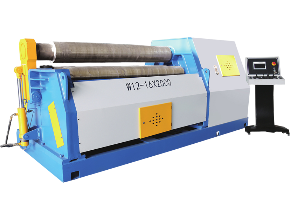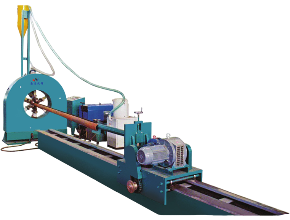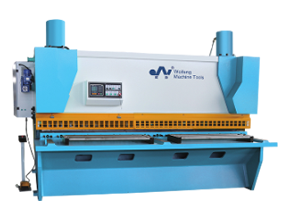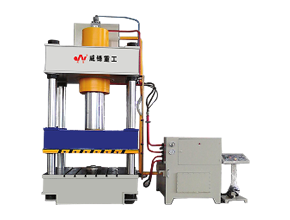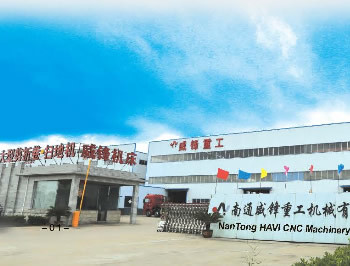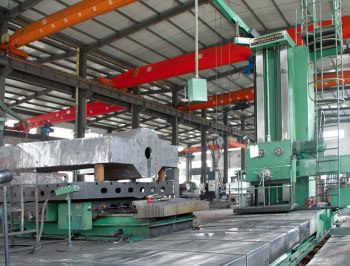Understanding CNC Rolling Machines: Revolutionizing Sheet Metal Forming Processes
Release Time:
2025-07-17
CNC rolling machines, also known as CNC plate rolling machines, are advanced tools used primarily in the manufacturing and processing of metal sheets and plates. These machines are designed to bend and shape metal into cylindrical or conical forms, providing a critical function in industries such as construction, aerospace, and automotive manufacturing. By utilizing Computer Numerical Control (CNC) technology, these rolling machines offer enhanced precision and automation, significantly improving the efficiency of metal fabrication processes.
One of the primary advantages of CNC rolling machines is their ability to produce consistent, high-quality results. Traditional rolling machines often require skilled operators to manually adjust the bending process, which can lead to inconsistencies and increased labor costs. In contrast, CNC rolling machines are programmed to execute precise bending operations, allowing for repeatable results with minimal human intervention. This level of accuracy not only optimizes production time but also reduces material waste, which is a critical consideration in today's competitive manufacturing environment.
The functionality of a CNC rolling machine revolves around its ability to handle various types of metal sheets, including steel, aluminum, and other alloys. The machine operates by passing the metal sheet through a series of rollers that gradually bend it to the desired radius. Depending on the design of the machine, it can roll sheets into different shapes, such as cylinders, cones, or custom geometries, making it versatile for multiple applications.
In addition to its versatility, CNC rolling machines can be equipped with various features, such as programmable controls, automatic feeding systems, and advanced safety mechanisms. These features not only enhance the machine's operational capabilities but also ensure a safer working environment for operators. Many CNC rolling machines come with integrated software that allows operators to create and simulate rolling processes, further streamlining production workflows.
Furthermore, the integration of CNC technology into rolling machines has opened doors for innovative applications. Industries now use CNC rolling machines for producing components in architectural designs, pressure vessels, and automotive parts, capitalizing on their ability to handle complex shapes and specifications. This adaptability makes CNC rolling machines an indispensable tool in modern manufacturing processes.
In conclusion, CNC rolling machines represent a significant advancement in the field of metal processing. Their precision, efficiency, and versatility make them ideal for a wide range of applications, enhancing productivity in manufacturing environments. As industries continue to evolve, the role of CNC rolling machines is expected to grow, driving innovation and efficiency in metal fabrication and shaping processes. By understanding the mechanics and benefits of these machines, businesses can leverage their capabilities to achieve higher quality production outcomes while minimizing costs.
One of the primary advantages of CNC rolling machines is their ability to produce consistent, high-quality results. Traditional rolling machines often require skilled operators to manually adjust the bending process, which can lead to inconsistencies and increased labor costs. In contrast, CNC rolling machines are programmed to execute precise bending operations, allowing for repeatable results with minimal human intervention. This level of accuracy not only optimizes production time but also reduces material waste, which is a critical consideration in today's competitive manufacturing environment.
The functionality of a CNC rolling machine revolves around its ability to handle various types of metal sheets, including steel, aluminum, and other alloys. The machine operates by passing the metal sheet through a series of rollers that gradually bend it to the desired radius. Depending on the design of the machine, it can roll sheets into different shapes, such as cylinders, cones, or custom geometries, making it versatile for multiple applications.
In addition to its versatility, CNC rolling machines can be equipped with various features, such as programmable controls, automatic feeding systems, and advanced safety mechanisms. These features not only enhance the machine's operational capabilities but also ensure a safer working environment for operators. Many CNC rolling machines come with integrated software that allows operators to create and simulate rolling processes, further streamlining production workflows.
Furthermore, the integration of CNC technology into rolling machines has opened doors for innovative applications. Industries now use CNC rolling machines for producing components in architectural designs, pressure vessels, and automotive parts, capitalizing on their ability to handle complex shapes and specifications. This adaptability makes CNC rolling machines an indispensable tool in modern manufacturing processes.
In conclusion, CNC rolling machines represent a significant advancement in the field of metal processing. Their precision, efficiency, and versatility make them ideal for a wide range of applications, enhancing productivity in manufacturing environments. As industries continue to evolve, the role of CNC rolling machines is expected to grow, driving innovation and efficiency in metal fabrication and shaping processes. By understanding the mechanics and benefits of these machines, businesses can leverage their capabilities to achieve higher quality production outcomes while minimizing costs.
Related News


